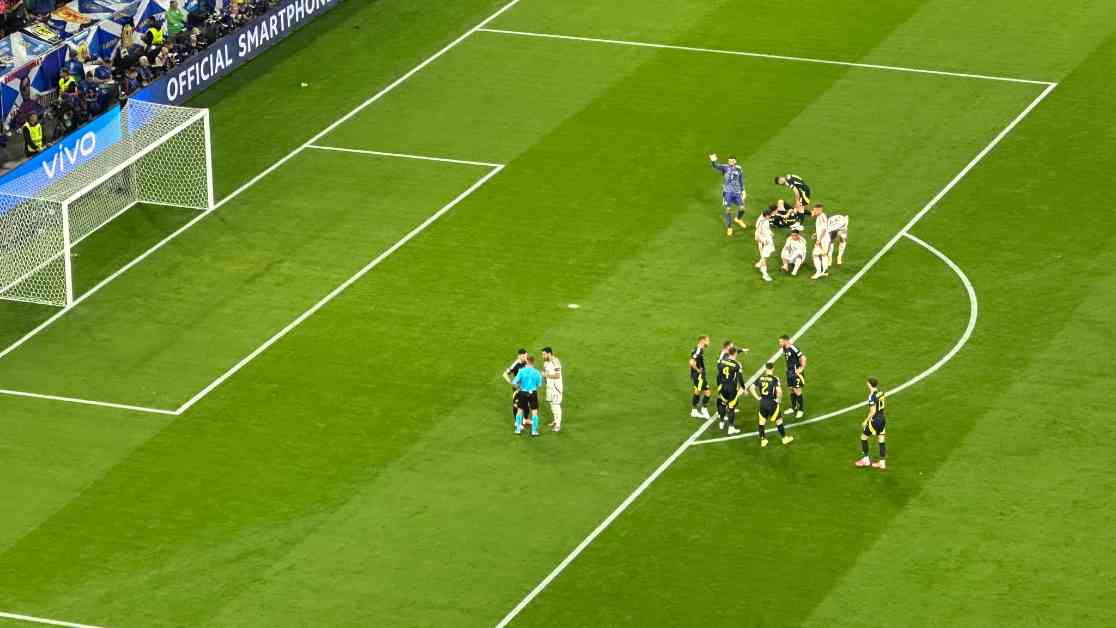The opening match of Euro 2024 between Germany and Scotland was the perfect opportunity for referee Clément Turpin to implement the new officiating rules. With explanations of VAR decisions displayed on screens and only captains allowed to speak to the referee, spectators witnessed this new system in action. So far, it seems to be working well.
As part of Euro 2024, officiating has undergone a small revolution. VAR decisions will now be explained on giant screens during matches. Another controversial measure is that only team captains can communicate with the referee to ask for explanations on a decision made.
During the opening match between Germany and Scotland, French referee Clément Turpin had the chance to test out this system. In the 25th minute, Christie fouled Jamal Musiala. Initially, a penalty was awarded, but after VAR intervention, a free-kick was given instead. However, there was a slight delay in displaying the explanation on the giant screen, which is supposed to be instantaneous.
While some feared an increase in yellow cards with the new rule allowing only captains to speak to the referee, both teams remained disciplined. Only captains Ilkay Gundogan and Andrew Robertson approached Turpin for explanations during that incident. Scotland did receive a major blow with Ryan Porteous’ dangerous foul on Gundogan in the box before halftime, resulting in the first red card of the competition.
Forward Kai Havertz successfully converted the penalty to secure Germany’s lead with a score of 3-0. Young talents Florian Witz and Musiala scored the first two goals. It is worth noting that Wirtz became the third German player to score the opening goal of a Euro edition after Gerd Müller (1972) and Karl-Heinz Rummenigge (1980).
Overall, the new officiating rules seem to be adding an interesting dynamic to the games, and it will be intriguing to see how they continue to impact matches throughout the tournament. The focus on transparency and captain communication with referees could potentially lead to fairer and more informed decisions on the field, ultimately benefiting the teams and the spectators alike.

